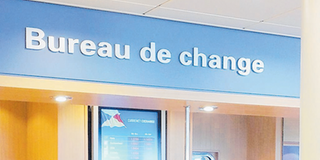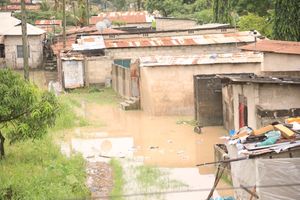What bureaus closure means

What you need to know:
- Since the government – working through the central Bank of Tanzania (BoT) – announced the new licensing requirements for bureaux de change last year, a number of them have closed shop.
Dar es Salaam. The closing down of dozens of bureaux de change in Tanzania is bound to have some negative implications, including on jobs and other socio-economic opportunities. But some analysts and operators in the field are happy that the financial sector is finally heading in the right direction.
Since the government – working through the central Bank of Tanzania (BoT) – announced the new licensing requirements for bureaux de change last year, a number of them have closed shop.
Nearly 100 bureau operators have failed to comply with the new licensing rules, claiming that they are “overly stringent”.
But other operators who spoke to The Citizen were of the view that the reduced number of bureaux de change will result in increased confidence among consumers of the bureaus’ products and services.
“The BoT had been registering too many complaints relating to the conduct of business by the bureaus in the country. The complaints mostly related to irregularities such as theft and robbery involving customers who carry cash in bulk after transacting at a bureau de change,” said the managing director of the Dar es Salaam-based FX Bureau de Change, Mr Sameer Milo. “This is why some of us see the new rules as being good for the business.”
According to him, allegations that some bureaux de change had been involved in cases of money laundering might also have some truth in them. In any case, that is part of the reasons why the regulator deemed it fit to sort out the rot in the sector.
Another bureau de change operator who declined to be named said the seemingly relentless fall in value of the national currency that was witnessed in the past may also have had a direct or indirect bearing on the way the bureau system operated.
“With too many players in the field, speculation becomes the order of the day, with unscrupulous players creating artificial shortage of the greenback now and then – and, thus, resulting in depreciation of the local currency. It was so easy to establish a bureau de change with little money. Some were conducting businesses using dirty money that’s obtained from illegal businesses such as dealing in illicit drugs,” he said.
“Since the introduction of the Foreign Exchange Act in June 2015, volatility of the local currency against most foreign currencies – mainly the US dollar – has almost been curbed,” he said.
BoT revised the rules for operating retail foreign exchange bureaus in the country in June, 2017 in a deliberate move to crack down on money-laundering.
In the revised rules, the central bank raised the minimum capital requirement for a bureaux de change business, as well as suspended the licensing of new bureaux de change.
It also required existing foreign currency retailers to apply for a new licence under revised conditions.
“The minimum capital thresholds were revised from Sh100 million to Sh300 million for s Class-A bureau de change, and from Sh250 million to Sh1 billion for a Class-B bureau,” the bank said in a circular dated June 21, 2017.
Class-A bureaux de change are licensed to deal with ‘spot FX’ transactions, while Class-B bureaux are licensed to deal with spot foreign currency transactions and money transfers.
According to the BoT, at least two-thirds of the required minimum capital should be in the form of cash as working capital.
The BoT has also ordered owners of the bureaus to authenticate the source of funds invested in their businesses – and doubled the non-interest-bearing deposit to $100,000. The deposit is held at the central bank as security for money transfer transactions.
BoT also ordered forex bureaus to tighten security at their premises, and ensure that no person becomes a shareholder, director or member of management or staff in more than one bureau.




